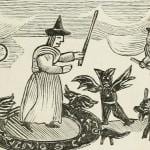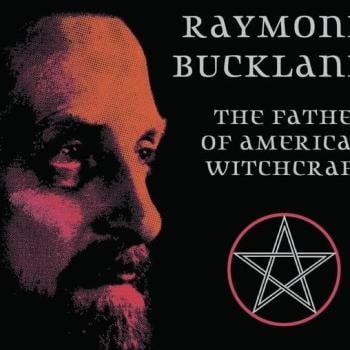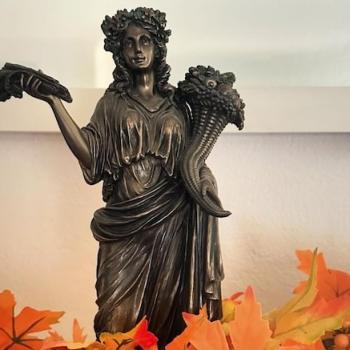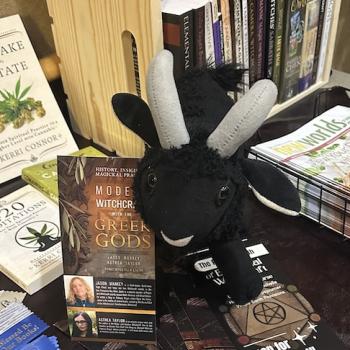When I need a break from book writing I like to answer Witchcraft and related magickal/spiritual questions. I generally take these questions on Facebook, so if you want to ask me something have at it! Today’s question comes from Martha Kirby Capo who asks:
I actually would love to hear your insights/thoughts on mix-n-match pantheons as part of a devotional practice.
I’m not sure that I really answer the question here, but I gave it a go, all in just about an hour of writing!
——-
One of my favorite images of Cernunnos is the Reims Stele where my favorite Gaulish god sits on a pedestal flanked by Apollo and Mercury (Hermes). It’s doubtful that most people who come across images of the Reims Stele pay much attention to Apollo and Mercury, the star of the show is clearly Cernunnos because it’s one of the clearest surviving images of Cernunnos from antiquity. But why not pay attention to the other two?
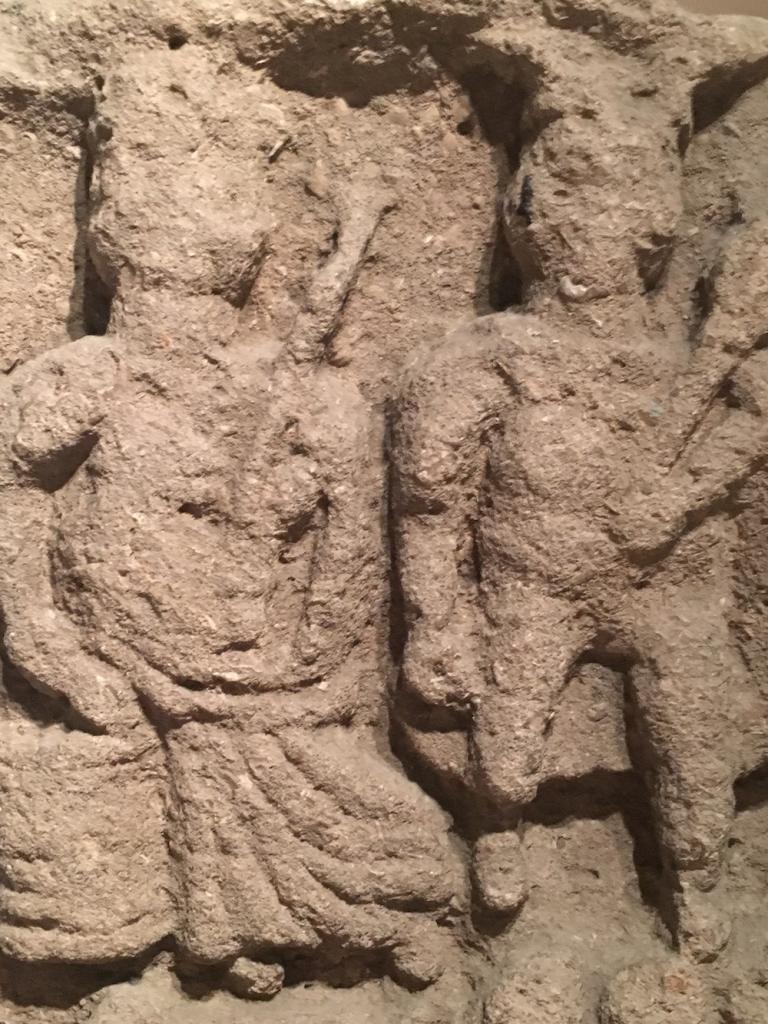
To hear a lot of people tell it today ancient pagan pantheons were carefully cultivated and maintained. Gods from one pantheon didn’t start hanging out with competing pantheons, they all existed in their separate eco-systems. One idea I keep hearing with a lot of frequency is that the Greek gods are only for the Greeks, but that’s not how the ancient world worked, the Reims Stele is proof of that.
Apollo is often considered the most Greek of the Greek gods, and yet there he is standing next to Cernunnos. Of course that most Greek of the Greek gods was adopted wholesale by the Romans, including his name. Apollo is also absent from Linear B the Greek script of the Mycenaean Age, meaning he’s of a more recent vintage than gods such as Dionysus or Zeus. Modern scholarship links him to the Caananite god Resheph.(1)
Mercury is the name of a Roman god who adopted the mythology and iconography of the Greek god Hermes. Around the same time Hermes merged with the Egyptian god Thoth to create Heremes-Trismegistus, a figure who would later show up in dozens of mythologies. In other words, the gods of pagan antiquity were often much more complex than we sometimes believe and they appeared in a variety of guises.
There are also a variety of pantheons whose deities share common origins. The Armenian, Phrygian, Greek, Gallic, Italian, Balkan, and German languages all share a source: ancient Indo-European language. The Indo-Europeans didn’t just share their language either, they often shared their gods. Zeus and Thor (or Odin) probably have a distant great-great-great-grandfather in common.
What this means is that very often, deities from different pantheons get along pretty well together. If you were living in North Africa in the decades after the conquests of Alexander the Great you would have been familiar with Greek, Mesopotamian, Canaanite, and Egyptian deities. Deities have never been prisoners of geographic borders, or even cultures. (And in the case of Hellenic culture, when you become the dominant culture you’ll find yourself being adopted and copied by millions of people.)
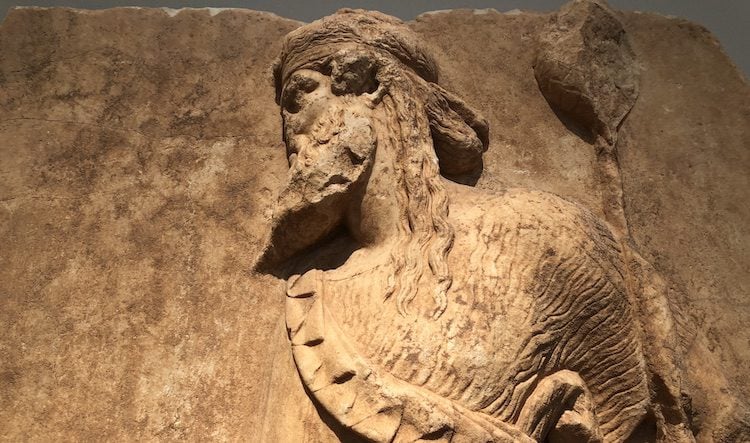
Notice that I wrote “very often” in the above paragraph and not “always.” My rule of thumb with deities is that if they were worshipped at the same time and in the same places they are probably used to being in proximity to one another. In my own personal practice this means I have relationships with Greek, Egyptian, Germanic, Celtic, and Roman deities in my circles with frequency. I don’t call up the lwa of New Orleans Voodoo, or invite Kokopelli to join in the festivities, those powers are from another place and time (and cultures and traditions I don’t feel comfortable accessing and I’m not a part of).
The gods of Pagan Antiquity never quite went away, but as objects of worship they’ve been rediscovered over the last 200 years. When people claim that honoring the Greek gods is a “closed” practice in the way Santeria is I have to shake my head. The gods of Olympus have not been continually worshipped the last 4000 years. There’s a huge gap in there. In addition, as we’ve seen, those gods were being worshipped from Britain to India by the First Century of the Common Era. It’s not the same.
Did you know that there were festivals in honor of Isis in Classical Greece? Deities cross over and have crossed over for a very long time. They are deities. They are gods. They are far more powerful than we are, and are capable of fighting their own battles.
So how to navigate honoring gods from multiple pantheons? Here are some ideas.
Were they honored together in the Ancient World? If you had the chance to visit Alexandria Egypt in the year 50 would you find Diana being worshipped in the same city as Osiris? If that answer is yes, you are probably in good shape! These deities know each other, and have most likely shared space in rituals and the hearts of worshippers for a very long time.
Have either of those gods been worshipped in the same way continually for thousands of years? A god like Shiva has been worshipped in a similar way for thousands of years, and while his worship in the 2020’s is not the same as his worship in the 0’s there’s a clear line of progression. In other words, I’m probably not going to worship Shiva side by side with Brigid. He’s been honored a certain way for a long time, and his peers and genealogy are a bit different than that of Brigid.
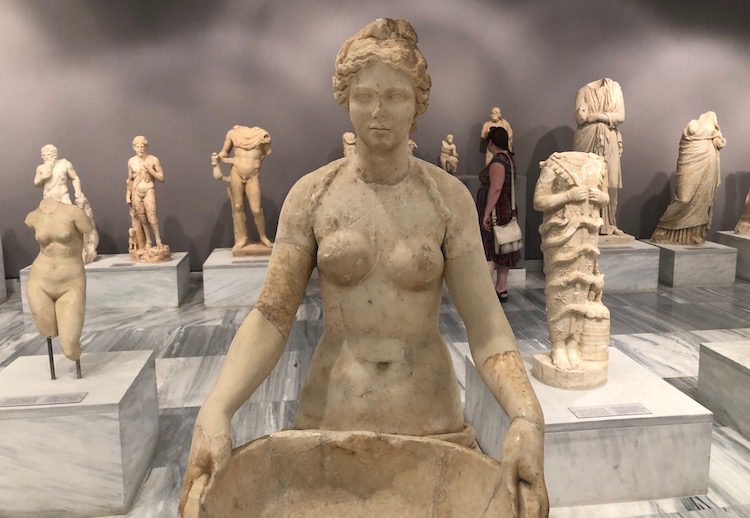
Do these deities get along? The gods are not correspondences. Just because a book or website lists two very different deities as having dominion over wealth doesn’t mean they are likely to get along. Explore the myths, work with the gods in question, just like there are people I wouldn’t circle with, the gods are (probably) the same way. If you are honoring a tea-totaler goddess, maybe asking her to work with Dionysus is a bad idea? Even within certain pantheons you need to be aware of how deities likely preceive each other. I can’t imagine that Hera and Hercules enjoy Thanksgiving dinner together.
Would both deities be comfortable in the circumstances they are being invoked into? As planetary correspondences the Roman gods were frequent visitors in magickal grimoires. (They were called to by name in many cases, I’m guessing they showed up, some devotion is better than nothing!) They later became guests in magickal rituals conducted by groups like the Golden Dawn (and in some cases Freemasonry and other fraternal orders). I think Pan is pretty comfortable in my Wiccan circle, because he’s been involved in that sort of thing for several hundred years now. But not every god is like this.
I’m not sure I’d call to Mary Magdalene in a Wiccan-style circle because she was a Jewish woman who worshipped a certain way. That’s just me though, and maybe you’ve discussed it with her and she’s OK with it. If that’s the case it’s probably go to proceed, but I wouldn’t go forward without doing some work first.
Think, do some research, be respectful of other cultures, work with your deities, and you’ll have some answers.
1. The Gods of Olympus: A History, by Barbara Graziosi, paperback edition, page 20.
Find Jason Online
The Horned God of the Witches
Transformative Witchcraft: The Greater Mysteries
The Witch’s Wheel of the Year: Circles for Solitaries, Circles, & Covens
Raise the Horns on Facebook Jason’s Twitter
Pictures Of My Cats & Sunflowers on Instagram
Witches, Whisky, & Wit (Podcast)
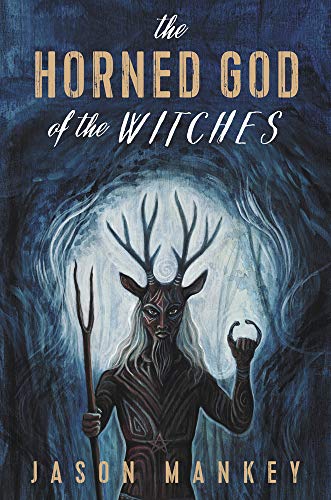
The Witch’s Wheel of the Year: Circles for Solitaries, Circles, & Covens
Raise the Horns on Facebook Jason’s Twitter
Pictures Of My Cats & Sunflowers on Instagram
Witches, Whisky, & Wit (Podcast)

Pictures Of My Cats & Sunflowers on Instagram



